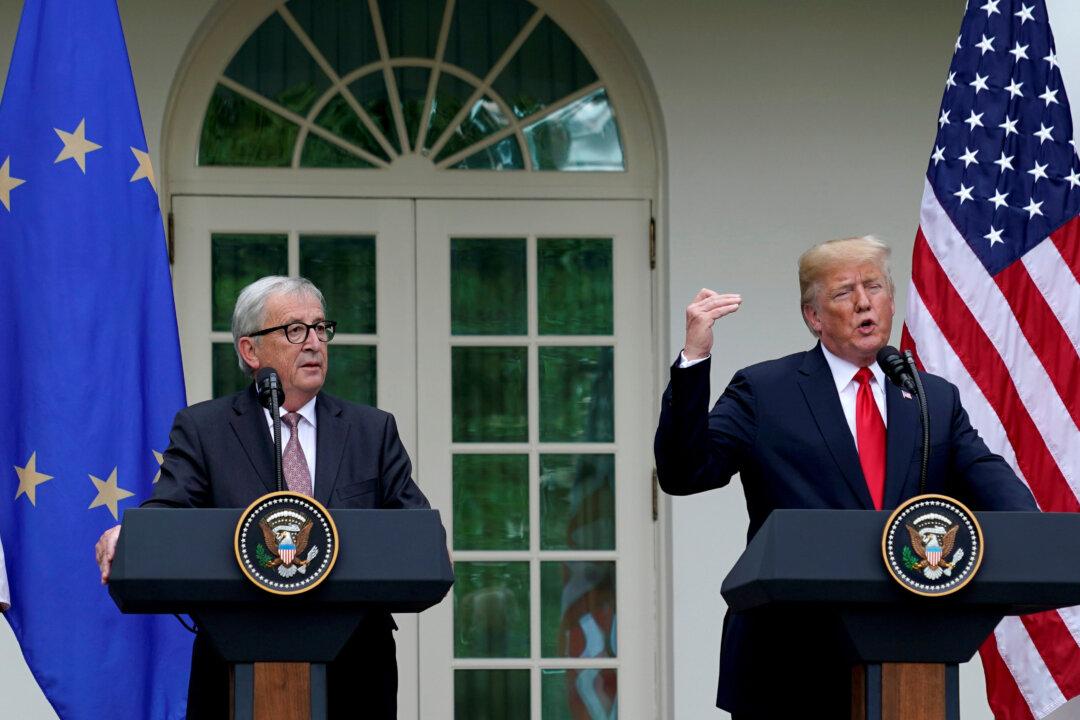As the U.S.–China trade war heats up, U.S. President Donald Trump and European Commission President Jean-Claude Juncker have met in Washington and signed a trade agreement on July 25 that could further tip the balance to Beijing’s disadvantage.
Per the deal, the United States will suspend further tariffs on the EU, including a proposed 25 percent tariff on European auto parts, while the EU will buy more American soybeans and energy in return.




